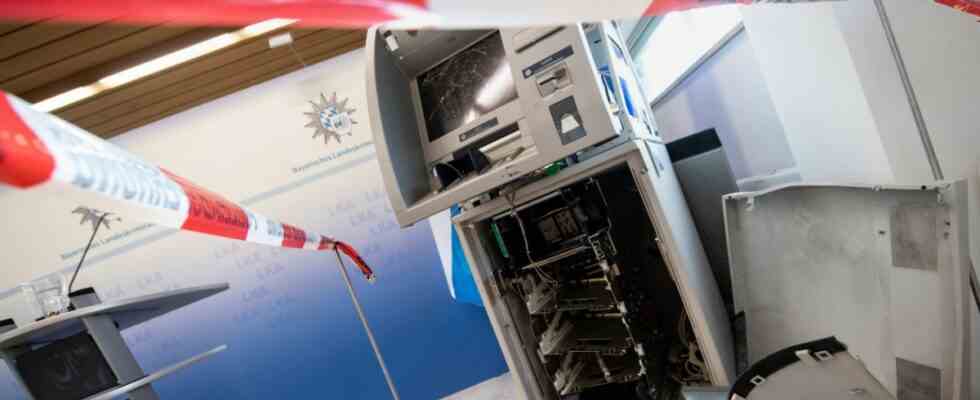Last year, the police and judiciary in Bavaria conducted 83 investigations involving a total of 773 suspects in the field of organized crime. This is slightly more than the year before with 75 cases. This is shown in the Organized Crime Situation Report 2021, which was published on Thursday by the State Criminal Police Office (LKA) and the Munich Public Prosecutor’s Office. Only four of these 83 procedures related exclusively to the Free State, almost all of them have international implications.
Crime is considered to be organized when several participants commit crimes in a business-like structure over a longer period of time and “determined by the quest for profit and power”. There is a nationwide definition according to which OC procedures are identified. “The aim of the criminal organizations is to make a profit. The aim of our investigators is that crime should not be worthwhile and that delinquent behavior is consistently pursued,” said LKA President Harald Pickert.
Organized crime was most frequently associated with economic life, for example call center fraud and “fake police officers”. The trend is that citizens are cheated with dubious investment products or cryptocurrencies (nine OC procedures). In second place follows drug trafficking, half of all cases here had connections to the Italian mafia, to criminal biker gangs that have nothing to do with motorcycle romance, and to the OC from ex-Soviet states. This includes smuggling, money laundering or human trafficking. Or property crime, including the rampant phenomenon of blown up ATMs. Four cases involved large-scale healthcare billing fraud.
The 773 suspects come from 49 nations. That is why the authorities look specifically at who dominates groups. These were mainly German and Turkish citizens, followed by at least three criminals from Italy, Israel, Ukraine, Kosovo, the Russian Federation, Albania, the Netherlands and Poland. “Clan crime that is the focus of the media, as in other federal states, is still not detectable in Bavaria,” says the report. In the OC situation report by the federal authorities, it was recently mentioned that in Berlin, Bremen, Lower Saxony and North Rhine-Westphalia “clan crime has become particularly widespread”; these are often families of Arabic origin.
In Bavaria, on the other hand, there was only one OC procedure that was directly assigned to a clan: forced prostitution, origin Southeast Europe, conducted by the public prosecutor’s office in Nuremberg-Fürth and the police headquarters in Central Franconia. Three procedures – two in Nuremberg/Fürth, one in Memmingen – also showed that suspects were related to non-Bavarian clan structures.
Fighting OC requires “special know-how from the public prosecutor’s office,” said Attorney General Reinhard Röttle. Among other things, the Free State established around 50 special public prosecutors based near the border, based on the so-called Traunstein model. These OC prosecutors are investigating “at Bavaria’s potential gateways to international crime, from Memmingen Airport via the Alpine region to the Waidhaus border crossing in the Upper Palatinate,” Minister of Justice Georg Eisenreich (CSU) once explained. The police have their own OC units at all police headquarters. The Greens in the Landtag regularly demand more comprehensive situation reports that also illuminate the dark field of the OC operating in secret.

